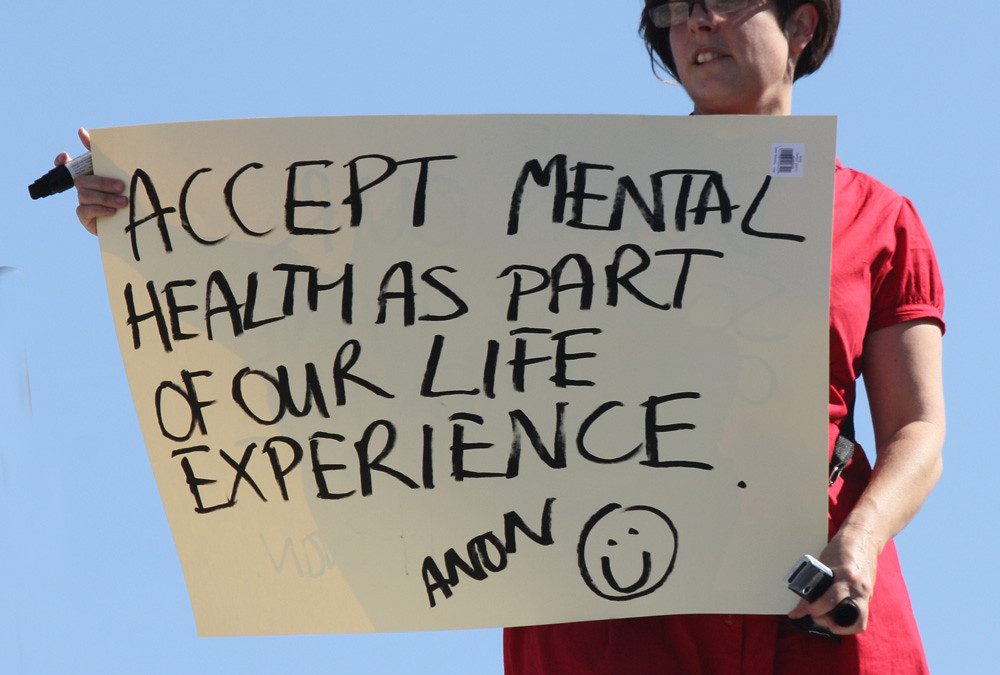The Journal of the American Medical Association Network Open has found that the COVID-19 pandemic tripled the rate of depression in U.S. adults, causing more adults to seek mental health help. That increase has led to professional burnout for a number of counselors in the Chicagoland area.
Licensed Clinical Professional Counselor Lauren Breit describes therapist burnout as “compassion fatigue.”
“With counselors … we kind of care and care and care. And then we break it for ourselves,” Breit said.
Breit, who opened Three Raven Counseling in Chicago last March, says she notices this compassion fatigue in herself when she starts taking things her clients say personally or when she starts zoning out during their sessions.
Normally, therapists can separate their patients’ anxieties and experiences from their own, which helps alleviate any burnout symptoms.
But in November, the American Psychological Association surveyed nearly 1,800 psychologists. It found that “41% said that they felt burned out” and “30% said that they have not been able to meet the demand for treatment from their patients.”
With everyone going through the same events of lockdown and quarantine, therapist Blythe Smith says, it can be easy for counselors to forget their role.
“Virtually every client I talk to has, at this point, a lot of anger and frustration about the pandemic and the restraints it’s made on their life,” said Smith “So I think it’s hard to hear it and make sure that we keep our boundary up so that we’re not fusing with the client.”
Smith, who shares a practice with her daughter in Orland Park, first noticed she may be experiencing burnout about a month ago.
Like many, Smith hasn’t been able to see her adult children or extended family in months. She saw people in her field die from COVID. And every day, Smith went to work to hear others tell her about the same thing she was dealing with.
“I remember the thought occurred to me during the middle of a session, ‘I can’t hear one more bad thing,’” said Smith.
That was the moment Smith knew she needed to take a step back and start seeing her own therapist. She said self-care is vital for counselors during this time — and yes, therapists do see therapists.
“We’re trying to take care of ourselves at this point so that we can be healthy for other people,” Smith explained. “But I think the other piece is, there might be a little bit more frequent breaks in our ability to be available. And part of it is just good self-care.”
Good self-care looks different for everyone, Smith said. While Smith and Breit have both been to see counselors, Brighton Park therapist Daniel Vergara said his graduate school cohort has helped him through this pandemic.
Vergara said that as a therapist he understands how this year has impacted the counselor community. So, last fall, he stopped seeing his therapist.
“I was just thinking, ‘I know she’s dealing with the same thing that I’m dealing (with),’” said Vergara. “I just don’t want to place that on her … I know this is affecting me (as a therapist), so I know it’s affecting her.”
This sense of guilt is common as therapists attempt to exercise self-care. Therapists went into a field intending to help others, and for many that’s been hard to do this year, especially as counselors have suddenly become booked so heavily that patients cannot always get appointments.
Breit specializes in three areas of counseling: PTSD, drug and alcohol counseling and male survivors of childhood sexual assaults counseling. But she says there aren’t many who do all that she does, and it makes waitlisting clients hard.
“It makes me personally very, very panicky when I get request after request after request … and I have to prioritize who I can see,” said Breit. “Do I prioritize new clients or do I prioritize clients that are coming back after a break?”
For Vergara, there’s an added sense of responsibility during this time. Vergara works with clients in Brighton Park who normally don’t have access to mental health services.
Many of Vergara’s clients are people of color.
“There’s an even bigger shortage of therapists of color so that kind of brings like an extra layer of guilt on me because I know that I am … a therapist of color and I’m also a male therapist of color and there’s even fewer amounts of those out there,” Vergara said.
Smith emphasizes that it’s important for counselors to practice their own self-care. Sometimes that means seeing their own therapists. Sometimes it means meditating.
And sometimes it means knowing it’s okay to cancel sessions.

